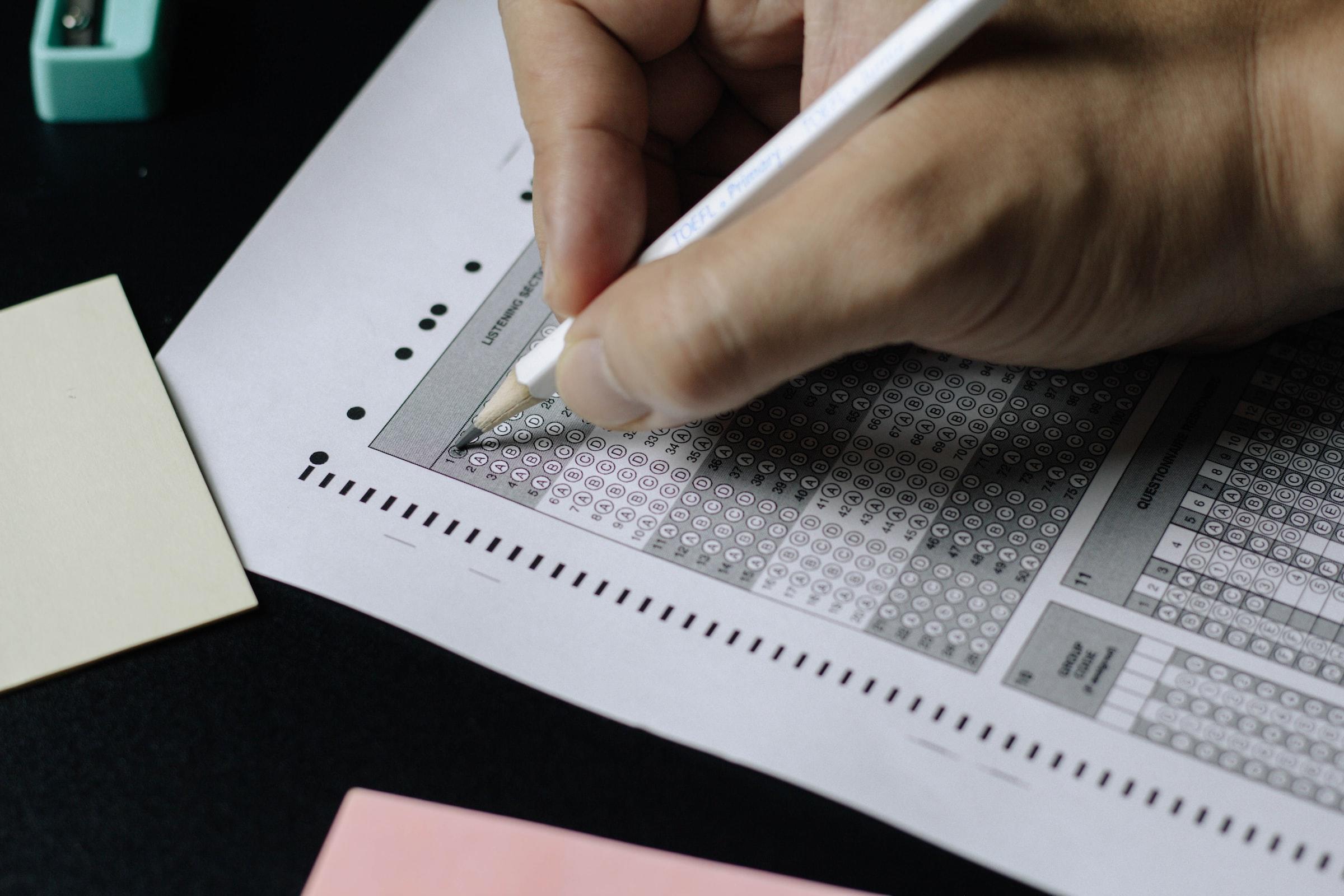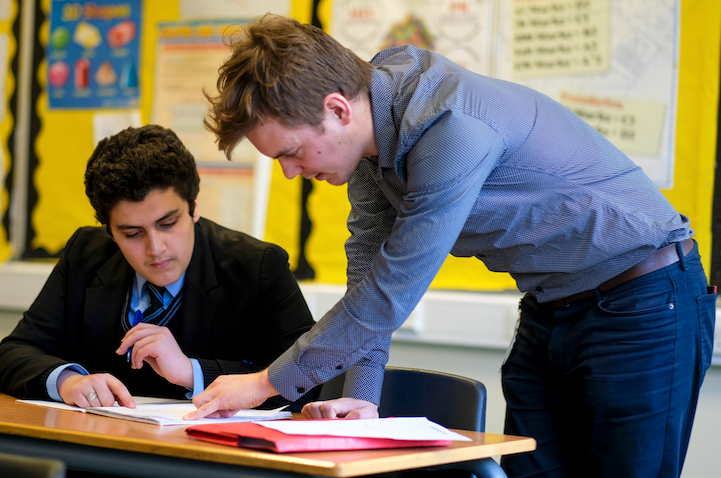Chapters
If you are a student and are struggling to improve your academic performance then you might just get some value from looking at these manageable, simple learning strategies that will help you to improve your academic performance. You will probably have every ambition to get the very most out of your education and get into the best colleges and universities.
People frequently consider a person's GPA when they hear "academic performance." However, a student's academic progress is influenced by a number of variables. While some students might not be class valedictorians, they will still have their own academic objectives. This page will assist students in achieving success, however, which could be defined for the individual student.
Top tutor Scott D has figured out the most effective strategies and techniques, based on his own experiences at university.
He discovered that while some aspects of a student’s academic performance are unique to them (i.e. their learning styles and natural aptitudes), several key strategies can be applied to accelerate anyone’s performance.
In this post, Scott outlines five strategies to improve academic performance. These are actual, useable tips. Most of them are simple, but if implemented they are extremely effective.


Practice Your Timekeeping
I would suggest that you practice working through exam solutions in the identical circumstances that you will face on test day if you truly want to maximise your academic achievement. Timekeeping is important for ensuring you get the right sleep, attend your lessons on time, and more.
When it comes to exams, students who are preparing for tests in high school and college should frequently check and consult the notes they have taken during the year.
While you might feel confident in your mastery of a particular course section, you'll likely see a decline in your understanding of earlier sections as you move on to new content.
As the class progresses through the course, it is imperative that you examine this content in private. This will help you in the long run and reduce the amount of work you have to accomplish independently in the program's final stages.
Students' attention to timekeeping may rank above their review of the course material as one of their top priorities. By allowing yourself 10 minutes, in the end, to quickly review your paper, you can avoid placing yourself under undue pressure to complete an exam. Additionally, this will provide students with the chance to respond to any questions they might have overlooked. You may even find that some sections let pupils put off completing other parts of the project.
In order to manage your time, if there is a question you do not immediately know the answer to, move on and do not spend too much time trying to figure it out. If you employ some of this advice in your study regime, it will go a long way in helping you to achieve the maximum grades in your upcoming exams.
Use A Wider Variety of Learning Resources
Using different resources is significantly more effective than using a single resource. People learn in a variety of different ways, so this can be one of the keys to success. Here are a few reasons why:
You can gain different contexts and/or perspectives
Anything that gives you a different perspective on a theory, idea or problem will enhance learning. A good example of this is looking at the earth from a single image. It does give you a perspective of what earth looks like, but you never get the whole picture until you look at it from several different angles (and get several different perspectives).
They can provide different associations and analogies
The same is true of using different associations and analogies. Everyone has had that experience where they haven’t understood something correctly, and then suddenly it clicked with an analogy that resonated with them. In my opinion, it is certainly one of the most effective ways to learn more abstract subjects, such as the sciences or maths.
Different learning styles i.e. visual, auditory and/or kinaesthetic are stimulated
In my experience, using resources that engage visual, auditory and kinaesthetic have the best results for students. As a private tutor, I will often start with a syllabus textbook and then gradually introduce other subject-specific reading materials.
I may also introduce videos, images, varied questioning and testing resources. This I find to be the most effective way for students to learn. Once you get to grips with what type of learner you are, you can choose learning resources appropriately.
Not sure what kind of learner you are? The tips below are great to help you discover your learning style.
It can help make learning more enjoyable.
There are two effective ways to memorise information: repetition and variation. While the former is very effective it is also quite tedious, particularly if it is from the same resource. Variation, on the other hand, is not only very effective but can also make learning more enjoyable. Studies have also found that students learn better through active engagement.


Get Through the ‘Frustration’ Period
There is no doubt that trying to learn a new skill or material can be frustrating at first. However, this is a natural process and the friction caused by a lack of understanding will always disappear given enough exposure.
A great analogy for thinking about these stages is learning to drive (or if you haven’t reached that stage, riding a bike). The ‘learning cycle’ suggests that we all go through four stages of learning. Here are the four stages using this analogy.
- Unconscious incompetence (this is when you are grossly incompetent at something because you haven’t been exposed to it before). When you start learning to drive, you don’t know how anything works. This stage can be very frustrating and you feel completely incompetent for the first couple of lessons.
- 2. Conscious incompetence (this is when you know you are not good at something despite having had some exposure to it). After a few driving lessons you begin to improve but you still cannot drive independently.
- Conscious competence (this is when you become knowingly competent in some area of skill). You have taken your test and are able to drive on your own. This stage, however, still requires a lot of conscious effort to drive on your own.
- Unconscious competence (this is when you can do it on autopilot. It becomes natural and subconscious)
Finally, after a few months, driving becomes subconscious and automatic for you. You get to the point where it is second nature.
One of the key challenges of secondary and higher education is getting a student to the last two stages of the learning cycle. The challenge is that many students are exposed only to new information for a few lessons at most.
The problem arises when students are stuck in the ‘incompetence’ stages of learning. Frustration can lead them to avoid the subject altogether; worse still, they start to believe they are not smart enough and develop a dislike (or even anxiety) towards that subject. We know, however, if students are able to through this ‘frustration’ phase they will grow in confidence and self-belief.
Make Sure You Study Smart
The best advice I can give to students who want to do well in school is to avoid being preoccupied with finding ways to cut corners. Avoid squandering money on unnecessary resources or gimmicks, and study smart wherever possible. Sometimes, a textbook is the main key to doing well.
The students must first fully comprehend the course topic. It's very simple; you should begin by learning the fundamentals before expanding your knowledge by consulting extra sources. The most crucial resource is your school or college textbooks, however, many students make the error of spending hundreds of euros on online courses and grinds before consulting them.
Students should go through their textbooks in order to gauge their learning by responding to the questions that are associated with each chapter. This will guarantee that they are conversant with the chapter's material and assist the student in identifying their areas of weakness and better focusing their future learning.
The textbook is a trustworthy resource that covers all subject matter that can be examined. I suggest that students begin their studies by reading the content in their textbooks. Students may find it advantageous to keep a hardback for their notes based on this. This is an excellent way to refresh the information that would have been covered in the reading of the content.
This exercise has many advantages, First, writing down the notes helps students remember the material. The hardback book will be a great study aid, especially in the days leading up to the exam, and it will save students a ton of time when they're revising.
Finally, if you want to succeed academically, make sure that you summarise each chapter into 3-5 pages of notes. Students will need to exercise caution when deciding what information to include. They will learn the most important information from each chapter as a result of doing this. Humans learn better from bite-sized pieces of information. If you try to take in too much at once, it doesn't work, just like asking your brain to multitask and take on too much.

Practice Working Through Past Exams
Even though you may have better ideas of what you want to do with your spare time, exam practice papers are the most productive study tool, and long-term adherence to this strategy will guarantee academic success.
If you put in the time and effort, consistent practice will help you do better on exam day. It will ensure that many of the questions on your paper are not unfamiliar to you and that you get used to working through exam papers under time constraints.
If you are practising at home, don't be frightened to finish these old papers. Reiterating any of your worries to one of the tutors in your region is a fantastic idea.
Another crucial piece of advice is to be aware of the subjects you are being graded on. Your teacher will undoubtedly discuss these concepts in class, but it is also a good idea to read outside of the classroom. You can be sure you understand all the exam requirements if you do this.
Here are a few of the many benefits associated with practising exams:
- Recognisable patterns will begin to form in the questioning and content.
- Applying knowledge to different types of questioning will become easier.
- Using additional resources supplied with the exam will become more familiar.
- The structure of the exam will make more sense.
- You will become faster and less prone to silly mistakes.
Ultimately, you will sharpen the techniques I discussed in the section above and become more aware of what the examiner (or mark scheme) is looking for. It helps you to build the sort of confidence you need going into your exams. Some exam boards will also provide you with exam papers if you request them.
One of the most common problems I see is when a student is knowledgeable in the subject area but cannot connect that with answering a question. This is simply a symptom of a lack of practice.
So there you have it. These are my top five strategies to improve academic performance. I guarantee that if you apply these strategies from the beginning of the year you will be shocked at how far you progress by the time you have to sit an exam and feel a lot better when the time comes to take the test.
Good grades are amazing but don't put too much pressure on yourself either, as this can backfire. Be sure that you are looking after yourself in other ways such as eating right, sleeping, and exercising. These can be vital steps to keep you in the right frame of mind for your exams.











